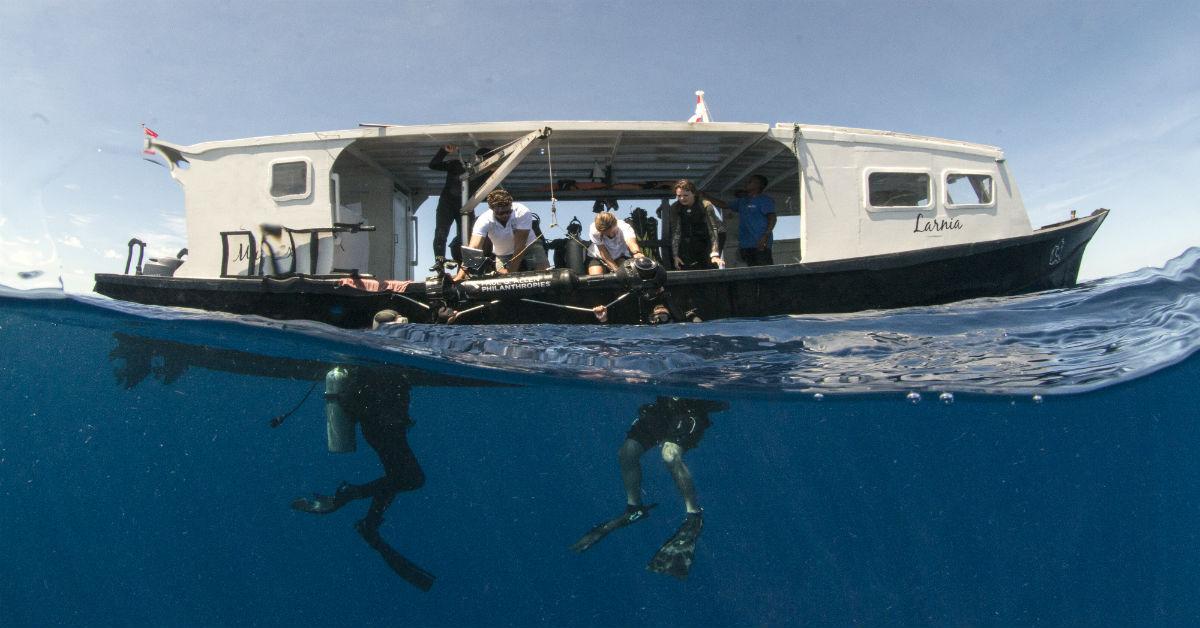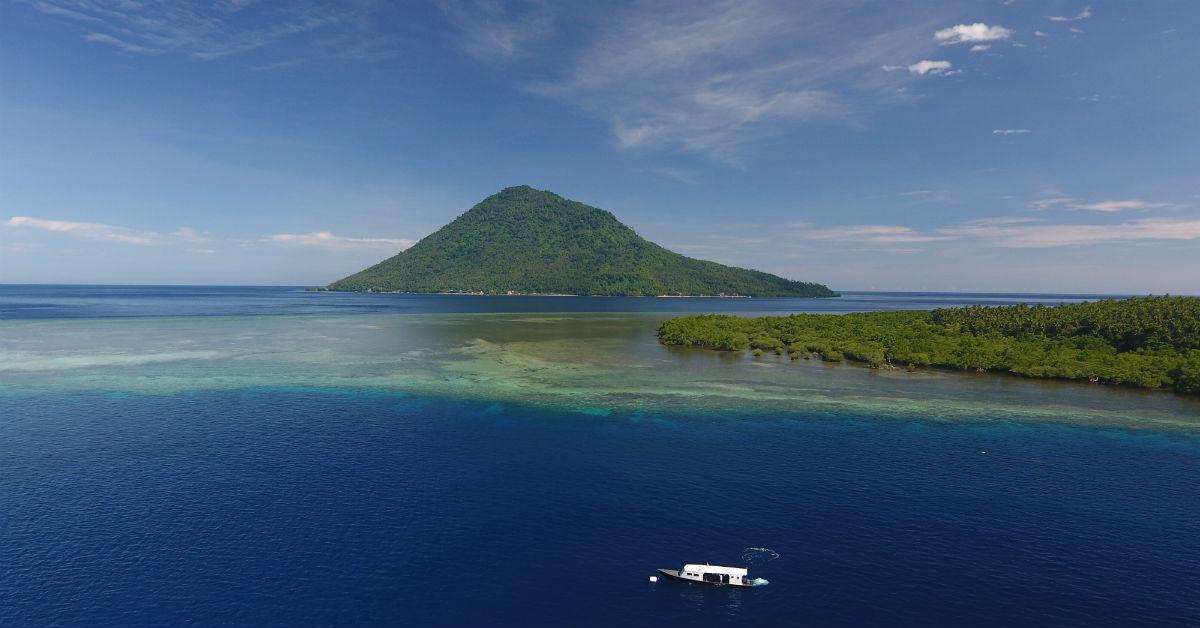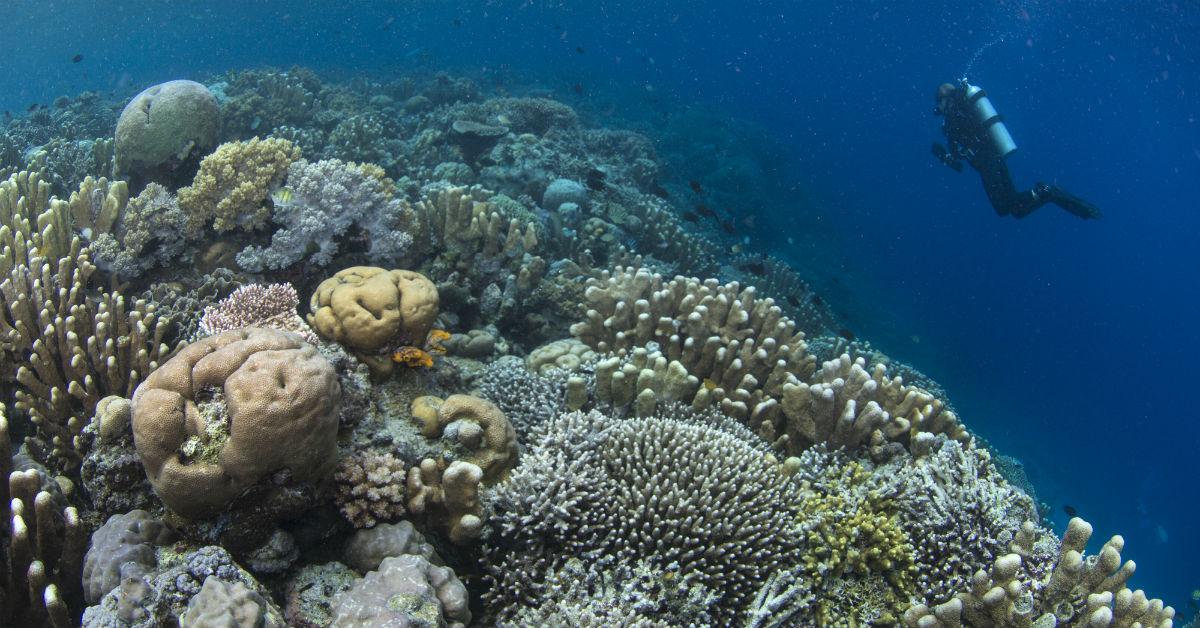Scientists Discover Coral Reefs That Could Withstand Warming Waters
Marine researchers have identified reefs off the coast of Indonesia that appear less vulnerable to climate-induced bleaching — and could be the key to combating its effects.
Updated May 31 2019, 3:08 p.m. ET
The Coral Triangle is a large swath of the Pacific Ocean that’s often called the “Amazon of the seas,” due to its staggering amount of coral (600 species), fish (over 2,000 types), and marine turtles (all but one species lives there). With coral reefs currently in crisis, scientists have turned their attention to the Triangle for answers — and they’ve just uncovered some encouraging news.
A team of marine biologists discovered shallow-water reefs off the coast of Indonesia that were surprisingly resilient in the face of mass bleaching, indicating they might be able to withstand increasingly warmer waters.
The scientists embarked on six-week expedition earlier this summer, with funding from Microsoft co-founder Paul G. Allen. They were hoping to study the effects of the unprecedented coral bleaching from 2014 through 2017 — which The Guardian has dubbed the “worst coral bleaching event in history.” Using underwater scooters equipped with 360-degree cameras, the University of Queensland researchers captured 56,000 images from the Coral Triangle. Artificial intelligence processed and analyzed those images in seconds, helping the team reach a surprising conclusion.
Despite the bleaching, the scientists found the shallow-water reefs near Sulawesi, an Indonesian island in the Coral Triangle, virtually unchanged since 2014. In some cases, they had bounced back to even better shape than before. The team believes these reefs could help inform recovery programs in other parts of the ocean.
“After several depressing years as a coral reef scientist, witnessing the worst-ever global coral bleaching event, it is unbelievably encouraging to experience reefs such as these,” Dr. Emma Kennedy, who led the expedition, said in a press release.
“It means we still have time to save some coral reefs through the science-based targeting of conservation action.”
But how can a few pieces of healthy coral help save ecosystems? The basic idea is to find the most resilient reefs and protect them from threats that aren’t related to climate change — issues like plastic pollution and overfishing, where scientists can have a more immediate and direct impact. Then, once ocean temperatures are stabilized, these hardy reefs could be used to restore the ones more susceptible to temperature spikes, at rapid rates.
Professor Ove Hoegh-Gulberg, another scientist on the study, believes identifying reefs that “are most likely to survive until global warming is brought under control” is crucial to the future of oceans.
“Technology is now allowing us to do just that,” he said in the press release. “It’s very exciting.”
Cutting-edge tech was a big reason why the study was so successful. The camera-equipped scooters allowed the researchers to bank thousands of photos to review in the lab, maximizing the limited time they can spend underwater. Goldman also praised the AI image recognition software used on the expedition, which saved her team countless hours.
“What would take a coral reef scientist 10 to 15 minutes now takes the machine a few seconds,” she said in the release. “It means we can start scaling up from studying reefs at a meter scale to looking at patterns of coral communities at the kilometer scale.”
The team has already begun mapping the world’s reefs with satellite technology and climate change predictions, earmarking areas that might be less vulnerable to heat and storms. The reefs there would, presumably, stand a better chance at survival.
While the scientists won’t release their fully reviewed results until later this year, the early observations are encouraging, and point to actionable strategies for marine scientists hoping to restore — and ultimately, save — the coral reefs.



